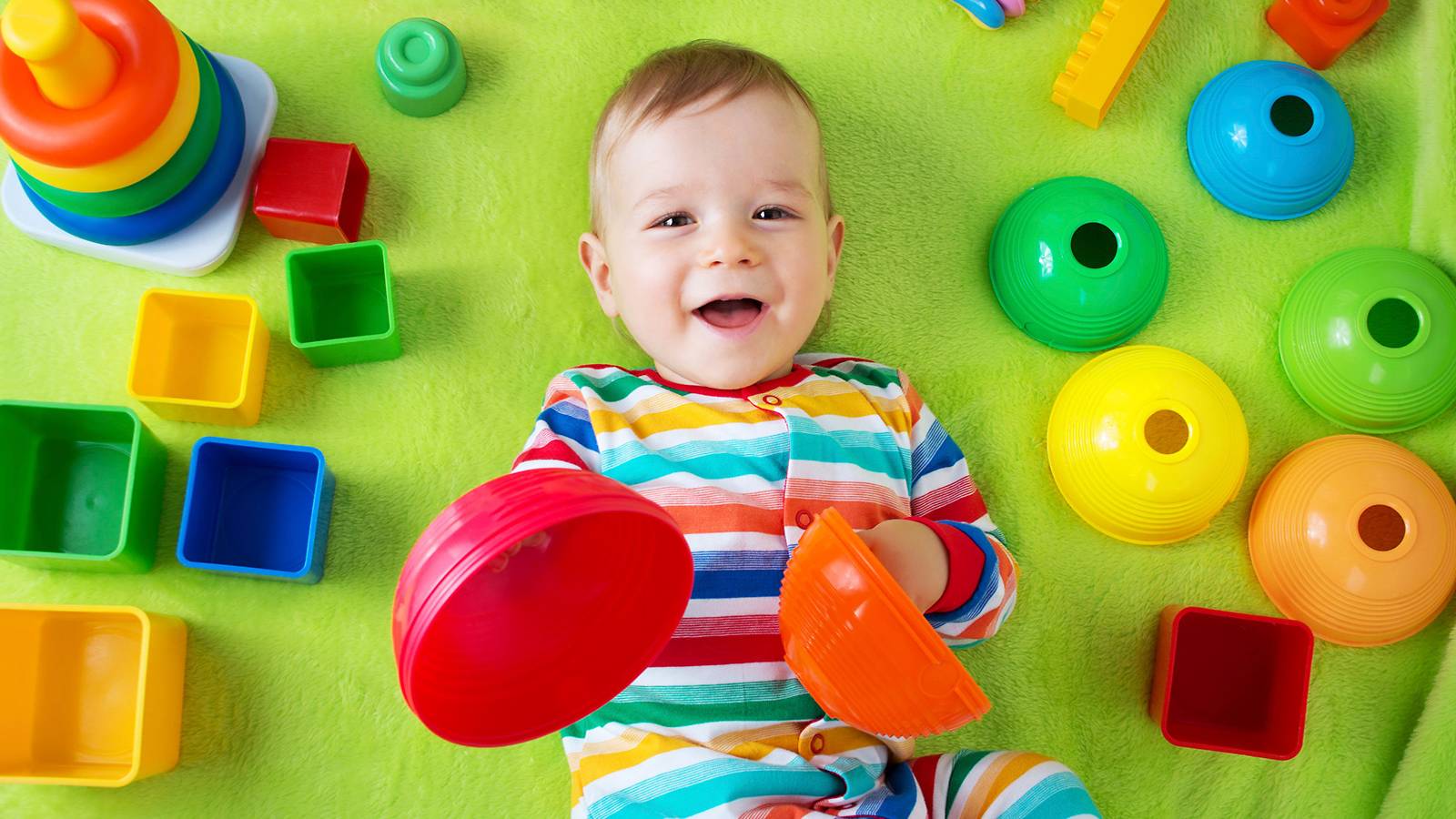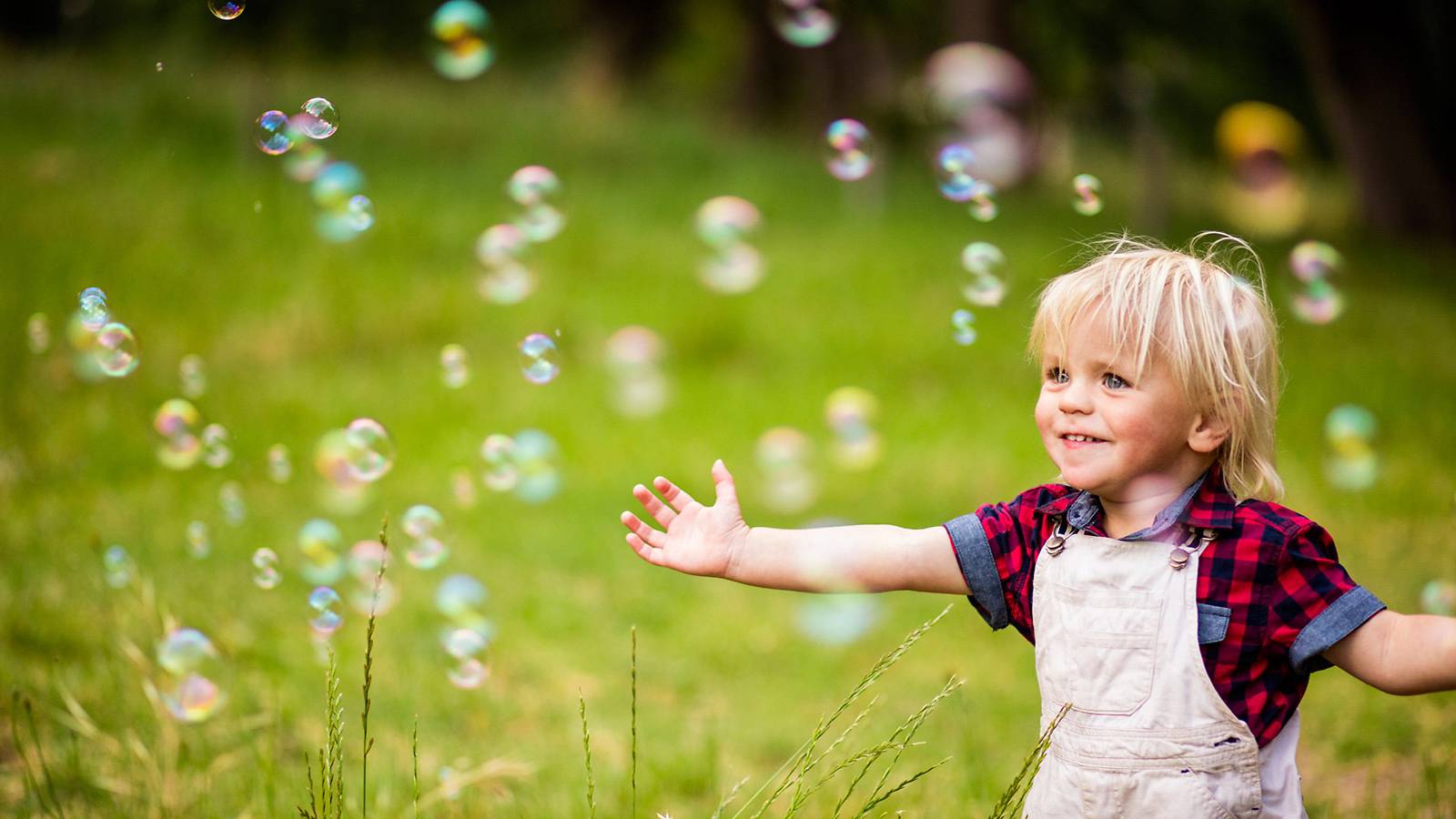Make the most of your little one’s playtime with these awesome activities ― and supercharge their development.
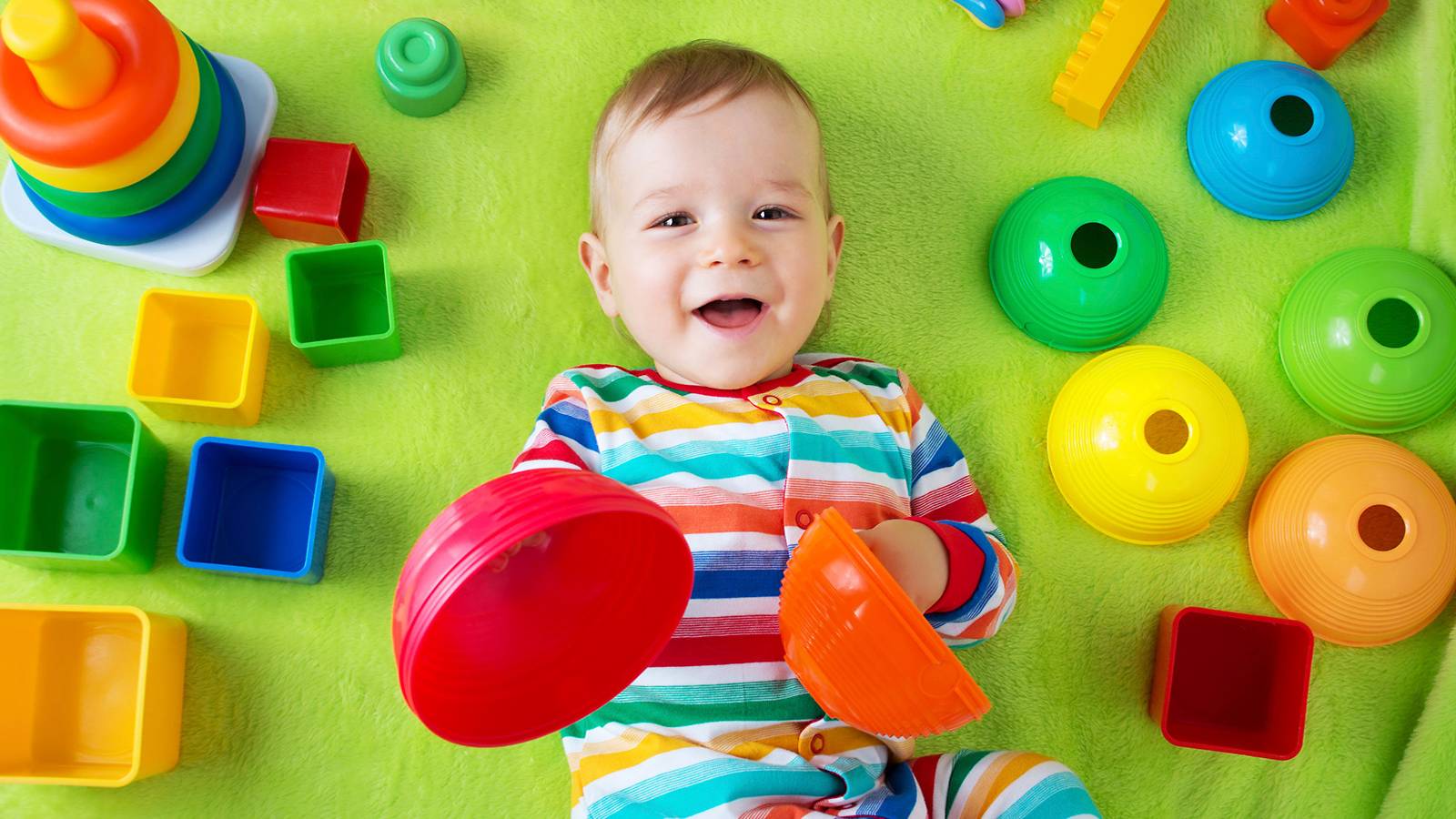
Play is an essential tool for your munchkin to learn about the world, who they are and how they fit in as much as it is about enjoying fun and games. As they grow, junior’s play preferences will also change, so she’ll begin experimenting with various toys, games and even switch playmates, too!
The playthings baby mess with can help them grow in different ways as well. Teethers enhance their sense of touch, books appeal to their imagination and various educational toys — like Lego and alphabet blocks — boost cognitive and problem-solving skills.
Play falls into two broad categories: Unstructured play — best for young children — happens when your kid taps on her imagination and creativity. These range from playing dress-up and manipulating figurines, to exploring new play areas like playgrounds or gardens.
Structured play, on the other hand, consists of organised exercises which require an understanding of rules, so it’s often led by an adult and are more suitable for older kids. Examples include group sports like catching, basketball; storytelling groups; dance, music or drama classes and card games. Turn playtime into something productive with these fun games:
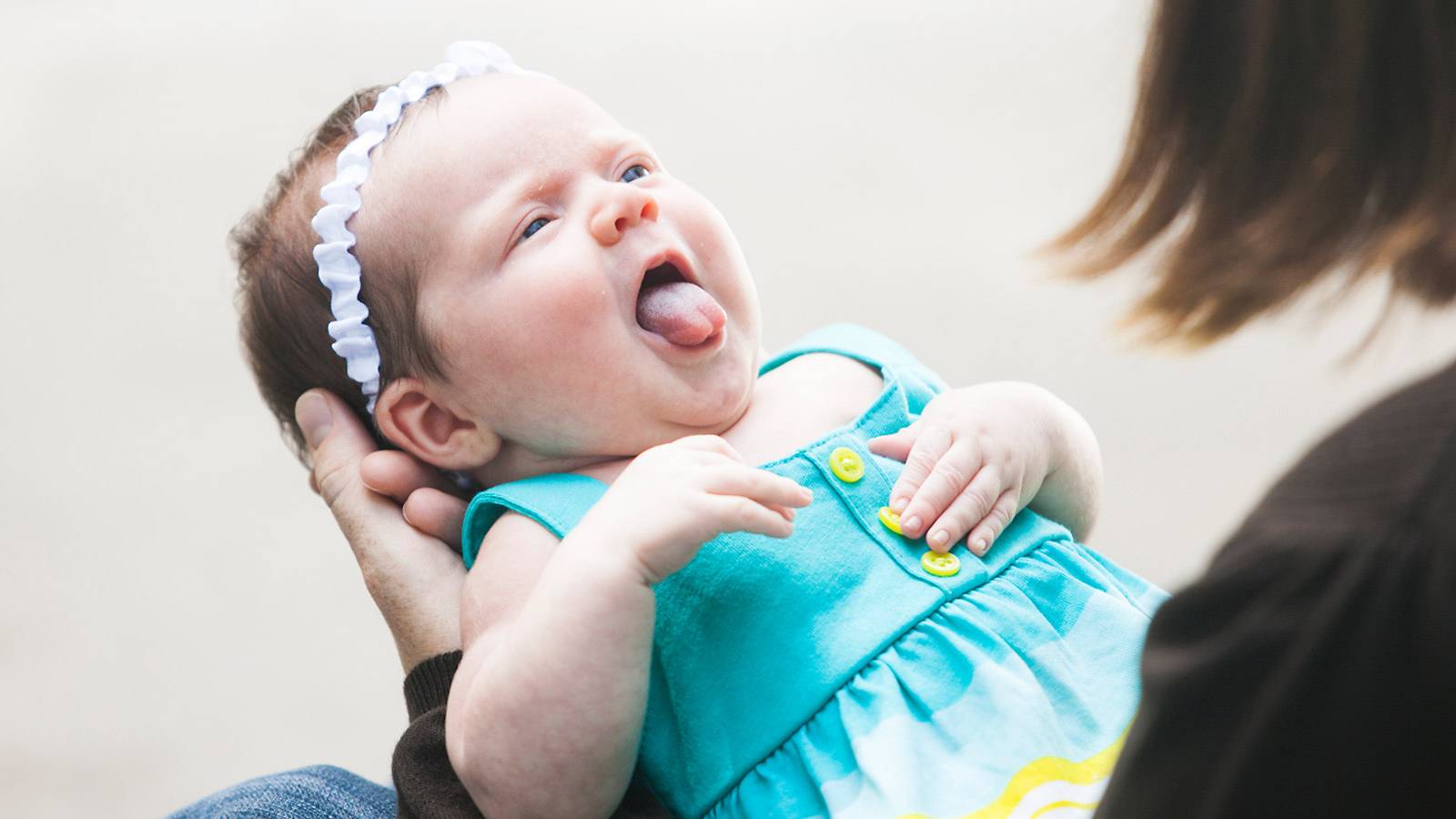
0 to 6 months
- Holding her close, singing and making silly faces ― these simple acts will certainly have her giggling with laughter.
- The imitation game: Hold baby close, look into her eyes (eye contact is crucial) and stick out your tongue. Repeat it at intervals and you’ll soon see her imitating you!
- By 3 months, you should expose her to different play positions. Alternate between resting her on her back and on her tummy — known as “tummy time”— which will show him different aspects of her play area.
- This is the stage when baby will crave sensory stimulation. Be sure to offer her a wide variety of objects to play with, like teethers and squishy toys. Watch out for choking hazards, too!
6 to 12 months
- Baby will adore interactive games and cause-and-effect toys, which give off sounds or emit lights when a button is pushed. Try hiding a toy under a blanket or pillow then ask, “Where did it go?” Peekaboo is helpful in enriching his growing memory.
- By 6 months, letting him peer at his reflection in the mirror might elicit a smile or even a giggle or two. Tap on his reflection and utter his name ― over time, he’ll come to recognise just who the person in the mirror is.
- Your munchkin is quickly turning into a mini-explorer as he crawls on all fours or cruises around the house. Place his playthings around the house to encourage him to get moving!
- By 10 months, you can teach your baby new gestures like blowing kisses, clapping his hands or giving a high five.
- Use puppets to breathe life into his bedtime stories, which will boost his imagination — and attention — along the way. Be bold and add different voices and animal noises, too.
Click to read how playtime can add to your little one’s development!
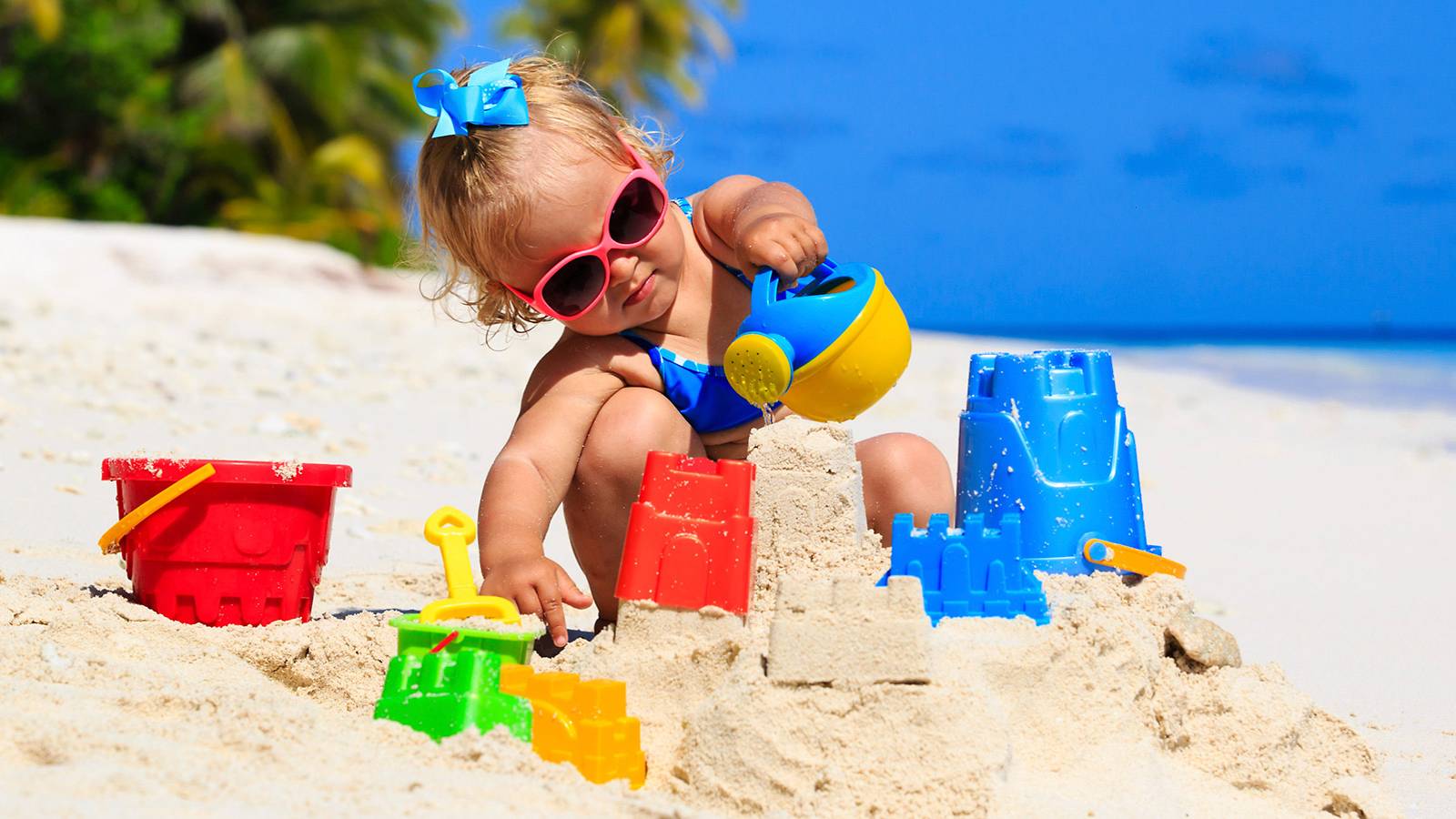
12 to 18 months
- You’d be amazed at how much baby can understand even though she can’t string together coherent sentences yet. Try this: Give your toddler a human biology lesson by pointing out the different parts of her body to her and explaining what it does. Then, ask her to point out the body part you name during playtime.
- Spend a day at the beach building sandcastles. Filling buckets, then emptying them is a fave activity with tots. Besides boosting their sense of touch, grab this opportunity to introduce different shapes and colours ,too!
- This phase marks your baby’s transition into toddlerhood, so don’t be afraid to be a kid again. If you have to, get on all fours, organise finger-painting exercises, or get drenched!
- Time to introduce push toys! As she begins to experiment with taking her first steps, mobile playthings will give your little one the support she needs.
18+ months
- Your kiddo will start to take a greater interest in playing with his friends. During his gameplay with peers, he’ll pick up valuable concepts like taking turns and sharing.
- Your child is becoming more and more mobile and active, so use mini-traffic cones to create various obstacles in his path, then guide him as he walks through it.
- Take the games outdoors to enhance his muscle coordination! Blow bubbles and let him chase them down or have him run about and work up a sweat.
- By 18 months, junior will be able to respond to questions, as well as imitate and repeat conversations she overhears. Play the “Pass the Message” game ― gather several of your kid’s pals and have them sit in a circle and whisper a sentence to your child. Have them repeat this to their peer in a whisper until the last person announces it out loud. Besides manipulating his speech, this activity will boost his listening skills, too.
Photos: iStock
You might enjoy these stories, too…
Track your baby’s milestones — speech and language

